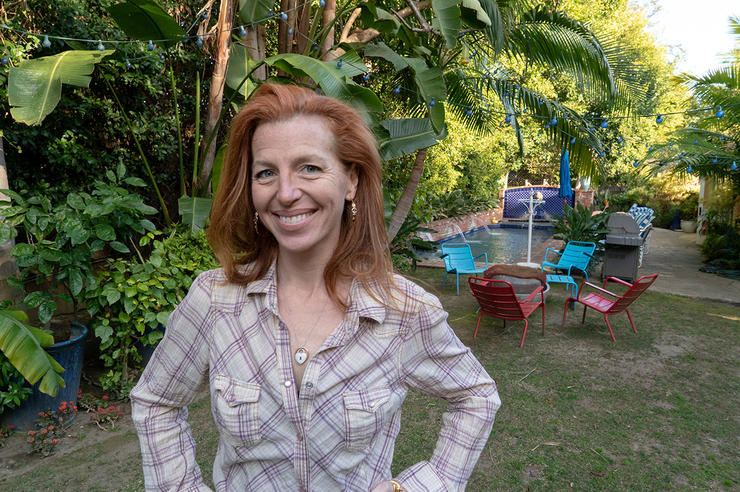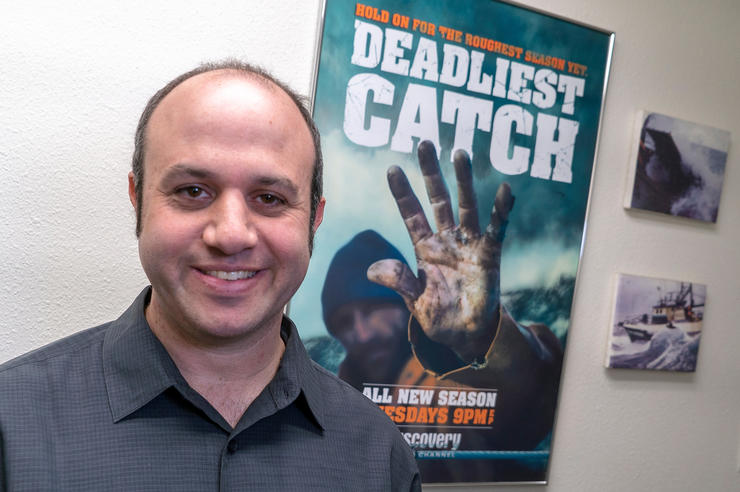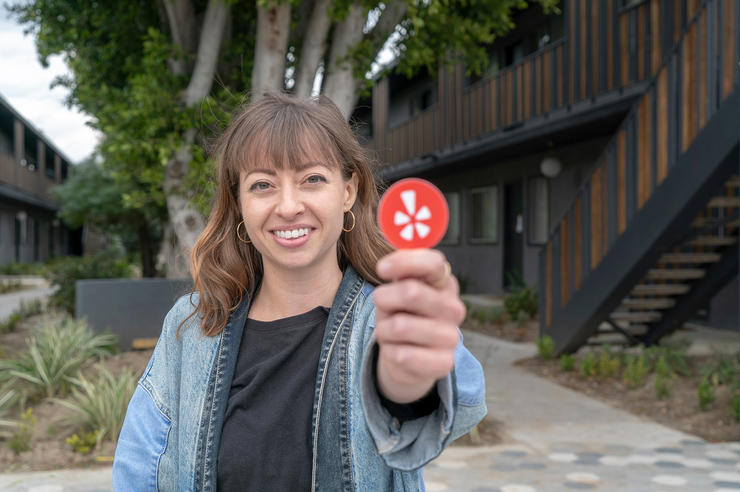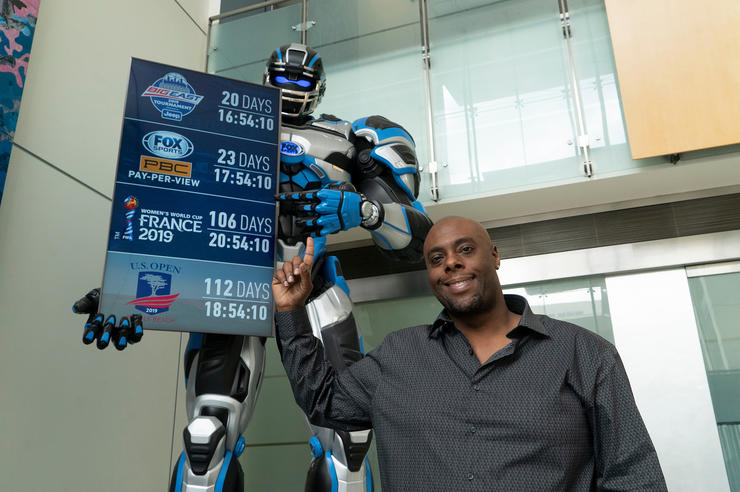Designing the Lego digital experience
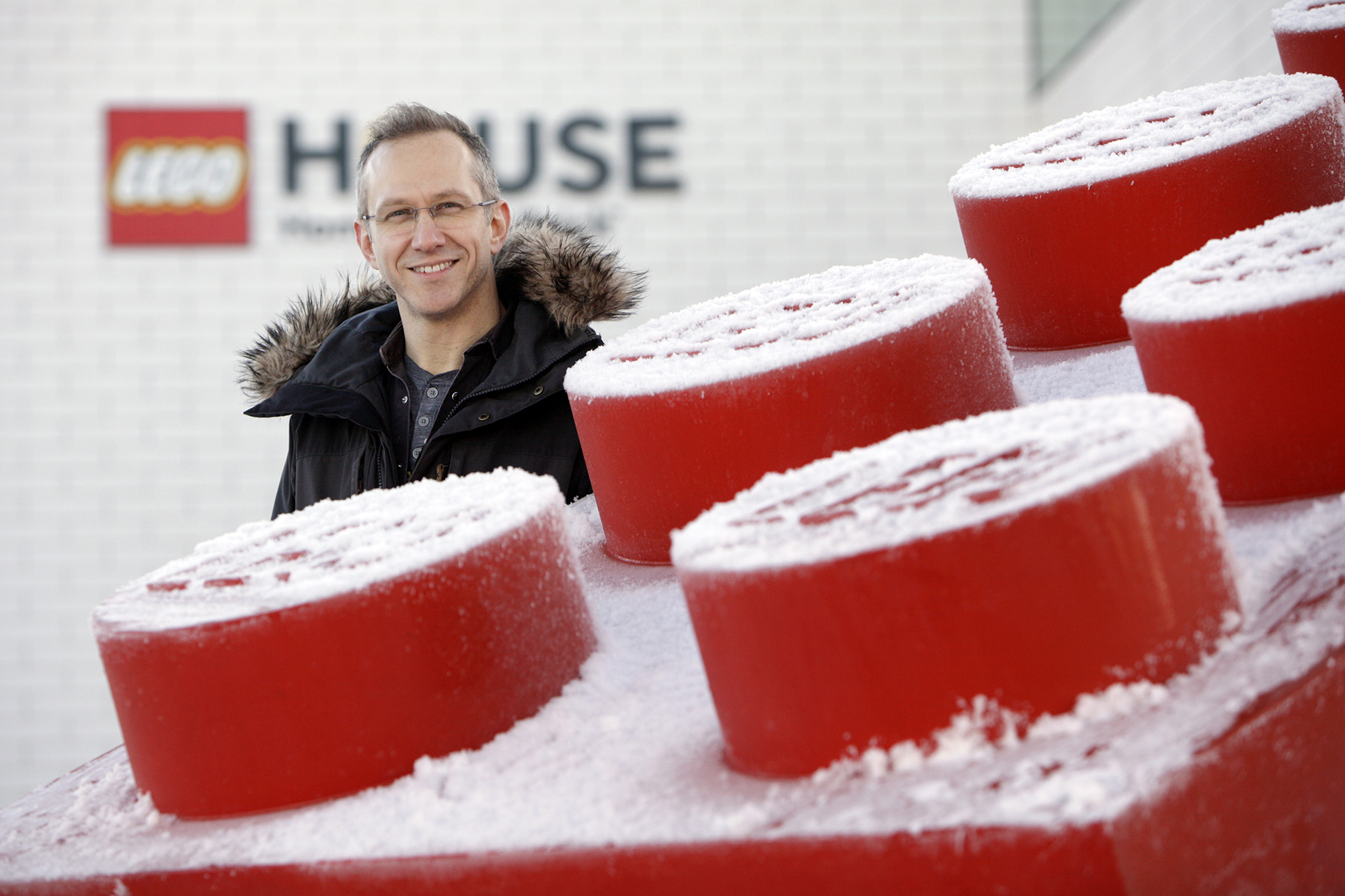
University of Iowa alumnus Bret Schafbuch is living a Lego-obsessed 7-year-old’s dream.
The Victor, Iowa, native is a senior manager of user experience and prototypes at the Lego Group headquarters in Billund, Denmark—a place where no one but Lego employees are allowed to enter if they are over the age of 12.
“Lego” is an extraction of the Danish phrase leg godt, or “play well.” The company, known for the iconic colorful, plastic bricks, has long explored how to extend healthy play into digital spaces, which is where Schafbuch and his department come in. They produce apps that accompany Lego products, and design and build software that supports internal model designers. Most recently, in collaboration with internal teams, they developed an app called Powered Up, which allows builders to drive the newly released remote-controlled Lego Batmobile.
As designers of user experience, Schafbuch and his team study how people feel and how they accomplish tasks when they use technology. One of the joys and challenges of designing for kids, says Schafbuch, is “many of the paradigms we think work for adults pretty much don’t apply to children.”
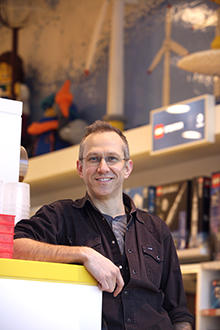
“Where I am today is directly related to that [study abroad] experience. When you travel abroad and live in a new place, you have to work really hard and adapt to your surroundings. You learn to speak the language and understand the culture. I grew a lot during that experience.”
One obvious example: children’s reading levels vary, so you cannot rely on text for navigation. Other aspects are more surprising.
“In terms of testing digital designs, kids are not afraid of failure; in fact, they learn that way,” says Schafbuch, who earned a Bachelor of Business Administration from the Tippie College of Business in 2000. “Generally, I’ve observed that the younger they are, the less fear they have trying out an app. When we lay out a design, an adult might follow a particular path or be tentative about doing something wrong, but with kids it’s more about what’s exciting and interesting.”
The family farm near Victor where Schafbuch grew up is a long way from Bilund, where he moved in 2012. He said the voyage started at the University of Iowa, which he decided to attend at the urging of an older friend from HLV High School who came to the UI. He came to Iowa City for a visit, and after she showed him around campus and the town, he was convinced it was the place for him.
“She pointed out that there were more options at a larger school like Iowa, and more programs to choose from,” he says. One of those advantages turned out to be an expansive study abroad program that allowed him to spend his junior year studying at the Vienna University of Business & Economics in Austria.
“Where I am today is directly related to that experience,” he says. “When you travel abroad and live in a new place, you have to work really hard and adapt to your surroundings. You learn to speak the language and understand the culture. I grew a lot during that experience.”
That preparation, he says, allowed him to manage his move to Denmark without the stress or drama that it may have otherwise brought.
His Tippie classes and his first-year Rhetoric class also taught him the interpersonal skills he needs to collaborate in small teams, communicate, and manage projects—skills needed in his current job managing a group of designers as a member of his department’s overall leadership team.
Some of his most rewarding work at Lego, Schafbuch says, has been the opportunity to collaborate with research specialists at the MIT Media Lab and Tufts University. Also, while attending an Association for Computing Machinery Interaction Design and Children conference, Schafbuch interacted with Juan Pablo Hourcade, an associate professor of computer science at the University of Iowa.
“In my industry, he’s an important person. It’s really special that we have someone from the University of Iowa who is an academic leader for interaction design for kids,” Schafbuch says.
The “Dark Ages” is what Lego calls the period after kids leave Lego behind and before they get back into it as parents, aunts, uncles, or even just as adult fans, and that ended for Schafbuch before his children came along thanks in part to the Lego Group’s induction program for new employees where set building is part of the work day.
“My first year working at Lego I was buying a new set every month. Nostalgia kicked in big time and I cleaned all my old sets from the ’80s and ’90s that my mom had kept,” Schafbuch says. “There have also been several niche sets that pull the nostalgia strings like Ghostbusters, Doctor Who, Back to the Future—and I had to buy them. Oh, and the Lord of the Rings sets were hard to pass up.”
Today, a favorite family pastime is building Lego sets that match his sons’ 4- and 6-year-old skill levels and interests, and trying to free-build objects like Santa’s sleigh with inspiration from pictures found online. His work is clearly something he takes a quiet pride in.
“It’s been neat to have worked on a product line and then tell my sons ‘daddy worked on that one’ and to see how curious they become,” Schafbuch says.
